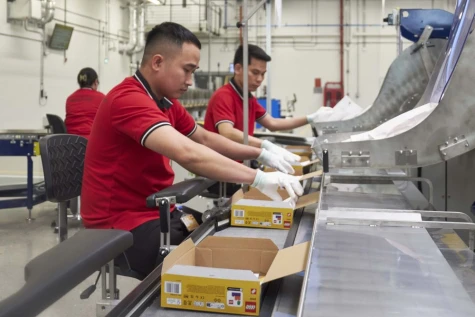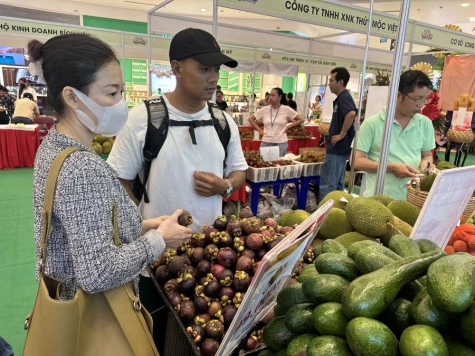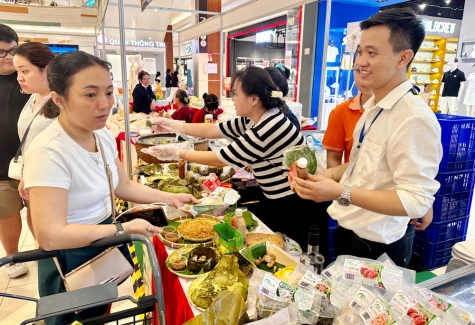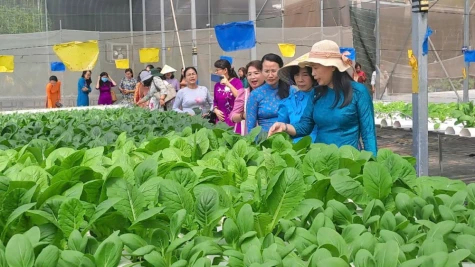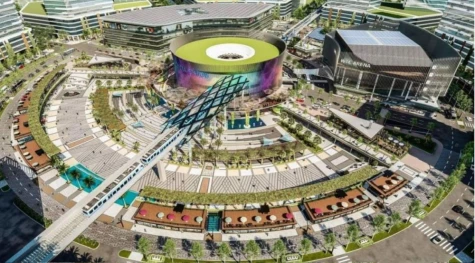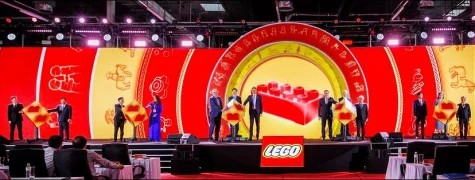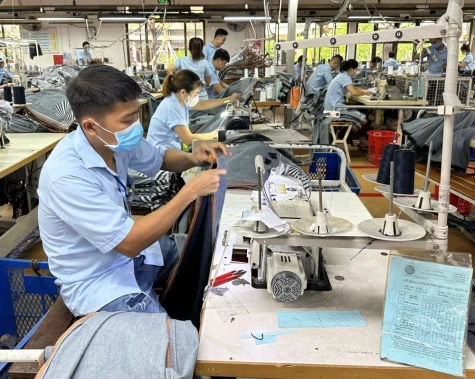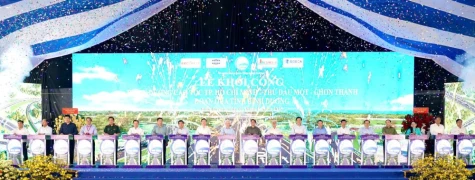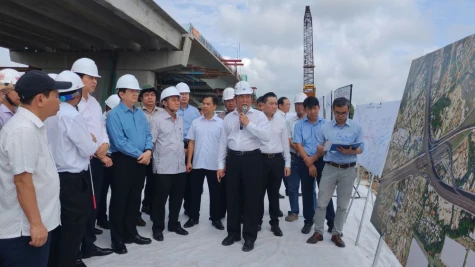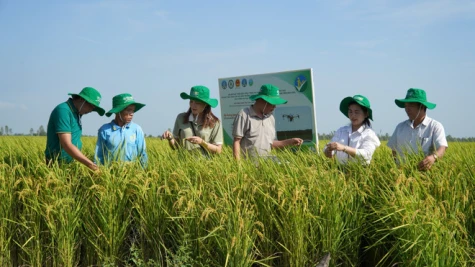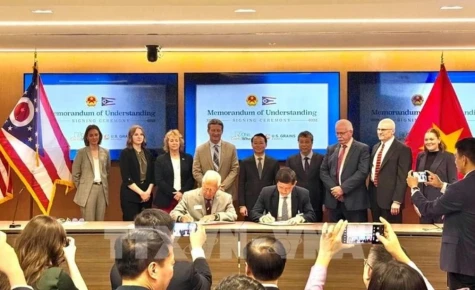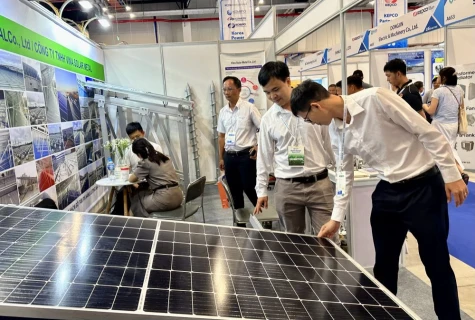After over 28 years of development, thanks to effectively tapping its potential and advantages, Binh Duong’s economy has made significant achievements in all fields. Among these accomplishments, the agricultural sector has left a positive mark, with the formation of high-tech agricultural zones, specialized citrus-growing areas, large-scale industrial livestock farming... These efforts have contributed to building Binh Duong into a province with modern industrial and agricultural development.
Strong shift towards high-tech agriculture
Although Binh Duong is known as an industrial province, with agriculture accounting for less than 3% of its economic structure, the local agricultural sector still contributes significantly each year, generating VND 16trillion–VND18 trillion, helping stabilize the lives of rural people. This success has come from the province’s focus on overcoming challenges, restructuring crops towards high-economic-value varieties and promoting high-tech applications in agricultural production. Specialized clean production zones have emerged, with eco-friendly high-tech farming models implemented by businesses, cooperatives, farms and innovative, proactive farmers.

From 2017 to 2020, Binh Duong restructured its cultivation sector by developing urban agriculture and high-tech agricultural models. The province expanded specialized zones for rubber, specialty fruits and safe vegetables, closely linked with processing and value chain consumption. High-yield, quality, pest-resistant varieties were applied to key crops such as rubber, pepper, oranges, pomelos, mangosteens, vegetables and crops...Currently, the province’s total high-tech farming area is about 8,418 hectares; urban agricultural land covers about 1,225.2 hectares and approximately 600 hectares are under organic-oriented cultivation, of which 171.5 hectares across two facilities have been certified as organic farms.
According to the agricultural sector's assessment, the application of high-tech farming in the cultivation of high-value crops such as melons, citrus fruits and bananas has been actively adopted by organizations and individuals. They have invested in intensive farming, designed automated sprinkler and drip irrigation systems, used hydroponic methods and applied production processes under VietGAP and GlobalGAP standards. These efforts have resulted in high yields and quality products. To date, nearly 100 production facilities across the province have been certified for applying VietGAP standards in cultivation, with a total cultivated area of about 600 hectares. The average agricultural production value reaches over VND 100 million per hectare per year, with some high-tech pomelo farming models generating an average income of over VND 1 billion per hectare.
Meanwhile, animal husbandry has continued growing steadily in a concentrated, large-scale direction. Currently, the number of agricultural farms in the province ranks second in the Southeastern region and fifth nationwide. The rate of farm-based animal husbandry accounts for over 90% of the province’s total herd. Binh Duong has also achieved notable results in establishing animal disease-free zones, aiming for export.
Creating driving force for breakthrough
According to Pham Van Bong, Director of provincial Department of Agriculture and Environment, Binh Duong has prioritized the “One Commune One Product” (OCOP) program to restructure the local agricultural sector towards higher added values and sustainable development. Through propaganda work on the purpose and meaning of the “OCOP” program; organizing training, supplementing knowledge on skills, capacity of enterprise management, cooperatives, quality management, food safety, intellectual property and green economic development for OCOP subjects has contributed to promoting the rapid development of OCOP products. As a result, Binh Duong now boasts 219 OCOP products rated 3 to 4 stars, contributing to the dissemination of effective production models and helping rural areas achieve a more stable life.
Entering a new phase of development, Binh Duong’s agricultural sector is determined to build upon its existing foundation and more creatively implement the Resolution of the 7th Plenum of the 10th Party Central Committee on agriculture, farmers and rural development, in line with the new orientation set forth in the Smart City - Innovation Region Development Scheme, as defined by the 11th provincial Party Congress for the 2020–2025 term. On this basis, the province’s agricultural sector has focused on maximizing its inherent strengths to develop competitive agricultural products; promoting various forms of cooperation and production linkages between farmers and between farmers and enterprises; establishing high-tech agricultural zones that integrate production with processing and market distribution. The sector has also aimed at creating a favorable environment to attract businesses’ investment in agriculture and facilitate the transition of labor and economic structures in rural areas.
In the coming time, Binh Duong’s agricultural sector aims at making a breakthrough in transitioning from small-scale, contract-based production to a more professional model that embraces high-tech applications. The province will continue tapping the local potential by promoting the application of science and technology, fostering innovation and advancing digital transformation in agriculture…These orientations aim at elevating Binh Duong's agricultural sector to a new level, contributing to the sustainable development of the province and the nation.
Pham Van Bong, Director of provincial Department of Agriculture and Environment:
To effectively adapt to climate change, market fluctuations and shifting consumer trends, the agricultural sector is to generate greater value with fewer inputs, less labor and achieve high value by taking full advantage of scientific and technological advancements towards sustainable development from perspectives on technolgy and production organization. To realize this goal, Binh Duong has issued various projects and plans towards developing ecological agriculture and circular economy practices in agriculture. In parallel, the province has promoted organic agriculture, agricultural restructuring, agro-tourism development, enhanced value chain linkages and OCOP (One Commune One Product) products in association with the construction of new-style rural areas, advanced and exemplary sustainable ones.
In 1997, when Binh Duong and Binh Phuoc were separated from Song Be province, Binh Duong’s agricultural production value was VND 935 billion. From 1997 to 2001, the sector’s production value grew by 7.6% per year. By 2001, the value reached VND 1,254 billion, accounting for 16.7% of the province’s economic structure. In 2024, although the agricultural sector accounted for only about 3% of the province’s economic structure, its production value increased by 14.2 times compared to that of 1997.
Reported by Thoai Phuong-Thanh Tuyen-Translated by Kim Tin








